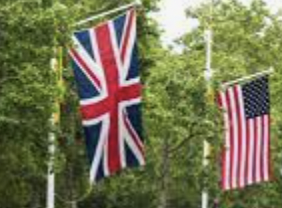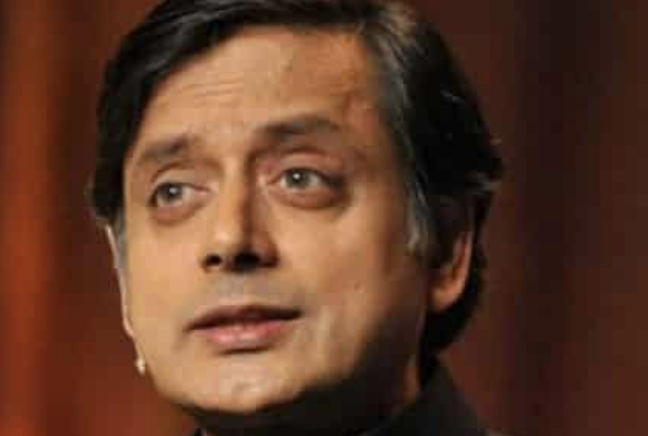
Lingustic differences


George Bernard Shaw says that the United States and the United Kingdom are “two countries divided by a common language” and Oscar Wilde said “ We have really everything in common with America nowadays, except, of course, the language.
Shashi Tharoor, an Indian schooled in the English language, and born in the most literate state of Kerala in India wrote “I have long been fascinated by English language’s different variants in use around the world – from the Singaporean “la” suffixed to every sentence to the Australian “G’day” prefixed to every greeting and the most compelling multiple differences between British and American English, the two languages fighting for dominance in the Anglophone world. In my first week on a US university campus, I asked an American where I could post a letter to my parents. There’s a bulletin board at the Student Center. But are you sure you wanted to post something so personal? I soon learned that I needed to mail letters, not post them (even though in the US you mail them at the post office”.
Differences between British English and American English include pronunciation, vocabulary, spelling, punctuation, idioms grammar, and formatting of dates and numbers.
Over the past 400 years, the British English language was introduced to the Americas by British colonization and also spread to numerous other parts of the world as a result of British trade and colonization and the spread of the former British Empire, by 1921, 570 million people, about a quarter of World population.
A few words have completely different meanings in the two versions or are even unknown or not used in one of the versions. Noah Webster, who wrote the first American dictionary published in 1828, was the architect who contributed to the differences with the intention of showing that people in the United States spoke a different dialect from those spoken in the UK.
In American English, rubber is usually interpreted as a condom rather than an eraser. A British fanny refers to the female pubic area while the American fanny refers to a butt or ass (US) or an arse (UK).
In Britain, one concludes a restaurant meal by asking for the bill, and conceivably paying by cheque, in America, one asks for the check and pays with bills. What the Brits call chips are fries in America; what the Yanks call chips are crisps in Britain.
According to Tharoor, “An English friend of mine says he nearly had a heart attack on a flight in the US when the American pilot announced that the plane would be airborne “momentarily”. In British English, “momentarily” means “for a moment”, and he says he thought the pilot was suggesting an imminent crash after taking off. In American English, however, “momentarily” means “in a moment”, and the pilot was merely appeasing the passengers. The plane eventually took off and stayed airborne, my friend’s heart stopped thudding, and he lived to tell the tale. But understood the old adage that Britain and the US are countries divided by a common language”.
What the American call restroom, the Brits call a toilet.
American call elevator, the British call lift.
American call apartments, the British call flat.
American call cookies, British biscuits.
A long distance in America is a Toll call, the British call Trunk call ( the distinction is a result of historical differences in the way local service was billed, the Bell System, traditionally flat-rated local calls in all but a few markets, subsidising the local service by charging higher rates, or tolls for intercity calls allowing local calls to appear to be free. In America, a toll-free number, and in British the term “Freefone” is a BT trademark.
In American English, the name of the river is placed before the word Hudson River, but in British English, the name of a river is placed after the word River Thames.
In American English a dollar fifty or a pound eighty, in British English these amounts would be one dollar fifty and one pounds eighty.
Dates are usually written differently in short numerical form. Christmas Day 2022 for example 25/12/2022 or 25.12.22 in the UK and 12/25/22 in the US.
British English -nce– defence, licence, offence, pretence.
-ogue-analogue, catalogue, dialogue
-our – behaviour, colour, favour, humour, labour, neighbour,
-re. – Centre, Fibre, litre, metre, theatre.
American English -nse–defense, license, Offense.pretense.
-og – analog, catalog, dialog
-or – behavior, color, favor, humor, labor, neighbor
-er – center, fiber, liter, meter, theater
Anecdotes abound about the misunderstandings that arose when foreigners come to the US thinking that they know the language. In one anecdote, a young man, in the course of a passionate courtship, tells his American girlfriend, “ I’ll give you a ring tomorrow”. All he meant was that he would call her. But she misunderstood him to have offered betrothal, and the relationship didn’t survive the misunderstanding.
A hotel failed to understand an English guest who called to say he left his trousers in the wardrobe. After translators were summoned the hotel staff finally cottoned on: “ Oh, you mean you left your pants in the closet. Why didn’t you say so in the first place?”
The language of politics is also not exempt from the politics of language. A member of parliament in Britain “tables” a resolution, and he puts it forward for debate and passage, when an American Congressman tables a resolution, he kills it off. A “moot” point is one the Englishman wants to argue, but if it’s moot, the American considers it null and void. While the British “stand” for election, Americans “run” for office.
A British linguist once told a New York audience that whereas a double negative could make a positive, there was no language in the world in which a double positive made a negative. A heckler put paid to his thesis in forthright American “Yeah, right”.
The difference between Indian English and British English.
In British English, vegetable is called Okra and in Indian English Ladyfinger ( Spongy biscuits at the bottom of tiramisu).
In British English aubergine Indian English Brinjal, American English Egg Plant.
In British English Yoghurt, Indian English Curd.
In British English million, Indian English Lakh.
In British English marriage, Indian English alliance.
In British. Bus stop/station. Indian English Bus stand/ halt
In British Mr. In Indian English Sir.
In British Boot and Indian English Dickie and American English Trunk
